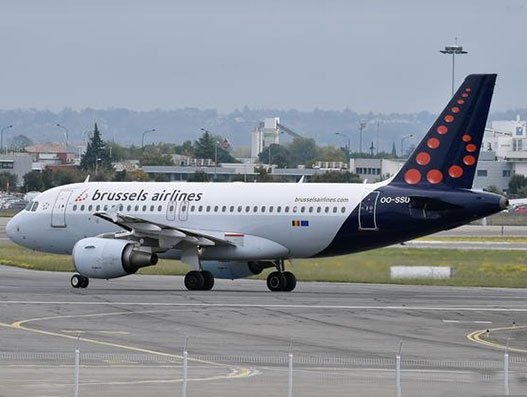
Brussels Airlines to temporarily suspend all flights
The coronavirus pandemic and associated flight bans as well as other measures restricting air traffic, imposed by many countries around the world, have severely and negatively impacted Brussels Airlines’ flight schedules and forced the airline to announce the temporary suspension of its scheduled flight operations for

Mar 19, 2020: The coronavirus pandemic and associated flight bans as well as other measures restricting air traffic, imposed by many countries around the world, have severely and negatively impacted Brussels Airlines’ flight schedules and forced the airline to announce the temporary suspension of its scheduled flight operations for four weeks as of March 21.
The Belgian carrier keeps however a minimal flight capacity available for repatriation flights, on request of the Belgian government.
“We have seen many crises in our company’s history, but the present Coronavirus crisis has a never-seen-before impact on Brussels Airlines. Not only in terms of cancellations and incoming bookings, but also the no-show rate rapidly accelerated, reaching more than 30 percent for Europe and North-Atlantic. Next to that, due to the many travel restrictions, we were obliged to continuously adapt our offer, making it unfortunately very difficult for us to offer our guests the service they are used to, despite the exemplary support and continuous care by our employees for our guests,” said Dieter Vranckx, CEO of Brussels Airlines.
Brussels Airlines has also taken rapid measures to reduce the negative financial impact on the company. Next to implementing for the entire airline a 30 percent temporary technical unemployment regime between 16 March and 20 March, Brussels Airlines decided to expand this measure, in line with the temporary suspension of all its flights, to 100 percent. Some exceptions to the full temporary unemployment will be made to cover the repatriation flights and to organize the restart of the operations.
The management board of Brussels Airlines has together with the extended management board decided to reduce its salary for the upcoming six months by respectively 20 percent and 15 percent.
“Exceptional circumstances, unfortunately require exceptional measures. It’s our duty to act as a responsible company and reduce the financial impact on our airline to a maximum extend in order to exit this crisis in the best way possible,” said Vranckx.
Within an extremely challenging environment, Brussels Airlines closed the financial year 2019 with a loss of 40.6 million euros and an adjusted EBIT of 25.9 million euros (IFRS standard). The Belgian airline registered a passenger growth of 1.7 percent, reaching a total number of passengers of 10.2 million. The average seat load factor in 2019 was just above 81% (+0.52 P.p. compared to 2018), while the number of operated flights remained stable compared to the previous year (+0.1%).
Brussels Airlines’ financial results were largely influenced by the bankruptcy of Thomas Cook Belgium in September last year, as well as ATC strikes in Belgium and abroad, resulting in a negative impact of more than 12 million euros on the airline’s bottom line. Next to that, high fuel costs put an additional burden on the company’s financial results of 14 million euros.
To further harmonize its fleet and lower its CO2 footprint, Brussels Airlines, with the help of the Lufthansa group, invested 140 million euros in new long-haul aircraft and long-haul cabins.
At the level of its positioning within the Lufthansa Group, the airline left the Eurowings Group to embed in the Lufthansa Group Network Airlines. In parallel, Brussels Airlines started the roll-out of its turnaround program “Reboot” that targets an EBIT margin of 8 percent as of 2022 by reducing overall costs, reviewing processes to increase efficiency and by redesigning its network.
Within a very competitive market environment and after many years of growth but insufficient profitability, Brussels Airlines decided last year to reorient itself and to start the roll-out of its turnaround plan called Reboot.
“The name Reboot has not been chosen at random. It’s not just another cost cutting program, but a thoroughly thought-through turnaround plan that next to working on the overall cost structure, also focuses on radically simplifying our way of working, a leaner organization and a redesigned network. We have set ourselves an ambitious, but realistic target of a structural profitability as of 2022 and this to be able to fuel our future,” said Vranckx.
A dedicated Reboot team is working on more than 100 projects that tackle topics such as productivity, efficiency increase, cost optimization, network review and embedding in the Lufthansa Group Network Airlines.

